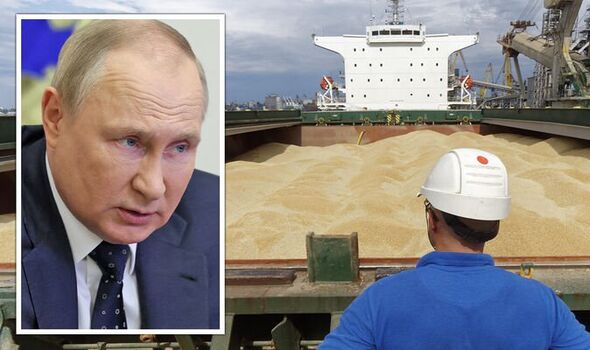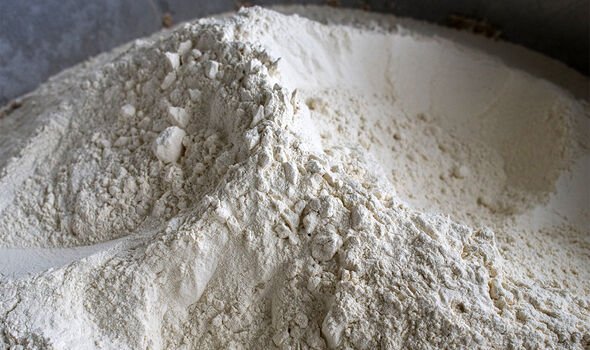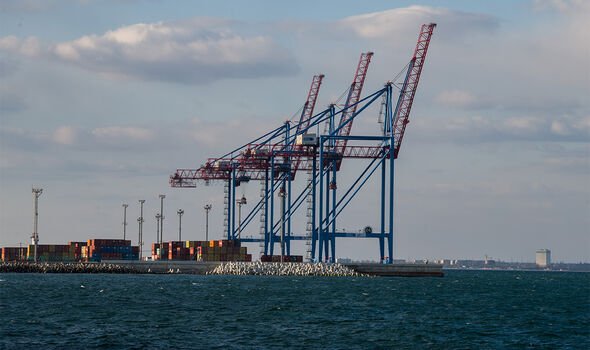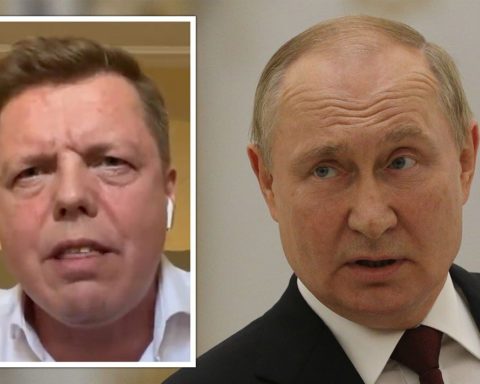Ukraine: Host warns of bread shortages following wheat blockade
Together, Russia and Ukraine produce 30 percent of the world’s wheat supply and — prior to the conflict — Ukraine was seen as the world’s breadbasket, with 4.5 million tonnes of agricultural produce leaving its ports each month. As Moscow’s war on Kyiv nears its third month, it is becoming increasingly evident the effects of the invasion go far beyond Eastern Europe, as people the world over “starve from hunger without this grain”, Ala Stoyanova, the deputy governor of Odesa, said.
Ms Stoyanova’s remarks echo those of UN Secretary-General Antonio Guterres, who said the war had worsened food insecurity in poorer nations.
Because of cut-off stocks from Ukrainian ports, which once exported large amounts of cereals as well as cooking oils, the global supply has diminished and prices of alternatives are skyrocketing.
Globally, they are now nearly 30 percent higher than at the same time last year, according to the UN.
Some countries, Mr Guterres warned, could face long-term starvation if Ukraine’s exports are not restored to pre-war levels.
Ukraine LIVE: Ireland labelled ‘collateral damage’ in Russian nuclear threat to UK

Putin’s war, combined with the effects of Covid and climate change, has sparked a food crisis (Image: Getty)
Speaking at a UN security council meeting in New York on Wednesday, Mr Guterres said the Russian war “threatens to tip tens of millions of people over the edge into food insecurity followed by malnutrition, mass hunger and famine”.
The effects of climate change and the coronavirus pandemic, he added, have contributed to the emergency, too.
In line with the UN’s bleak assessment, Ms Stoyanova said: “You already have a refugee crisis in Europe with people fleeing there from this war in Ukraine.
Speaking to the Telegraph, she added: “You may now get a refugee crisis from hunger in third countries too.”

Russia and Ukraine produce 30 percent of global wheat supply (Image: Getty)
As per UN figures, around 20 million tonnes of grain are currently stuck in Ukraine from the previous harvest which, if released, could relieve pressure on global markets.
Mr Guterres said the only effective solution to the food crisis was reintroducing Ukraine’s food production, as well as fertiliser produced by both Russia and Belarus, back into global trading.
He stressed: “There is enough food in our world now if we act together. But unless we solve this problem today, we face the spectre of global food shortage in the coming months.”
US secretary of state Antony Blinken, speaking at the meeting on Thursday, called on the Kremlin to “stop threatening to withhold food and fertiliser exports from countries that criticise your war of aggression”.
DON’T MISS
Nuclear bomb radius: How far nuclear fallout could reach [EXPLAINER]
NATO nuclear weapons mapped [ANALYSIS]
Why Putin won’t speak English – inside his bizarre power play [INSIGHT]

The West has demanded Russia lift its blockade of Ukraine’s Black Sea ports (Image: Getty)
Demanding Moscow lift its blockade of Ukraine’s Black Sea ports, he said: “The Russian government seems to think that using food as a weapon will help accomplish what its invasion has not – to break the spirit of the Ukrainian people.
“The food supply for millions of Ukrainians and millions more around the world has quite literally been held hostage by the Russian military.”
Earlier that day, Dmitry Medvedev, a former Russian president who now serves as a senior security official, warned Russia would not enable food supplies unless the West eased its sanctions on the country.
Medvedev said Russia was ready to contribute to averting possible famine in some nations but expected “assistance from trading partners, including on international platforms” in return.
He wrote on Telegram: “Otherwise, there’s no logic: on the one hand, insane sanctions are being imposed against us, on the other hand, they are demanding food supplies.
“Things don’t work like that, we’re not idiots.
“Countries importing our wheat and other food products will have a very difficult time without supplies from Russia. And on European and other fields, without our fertilisers, only juicy weeds will grow.”
Medvedev, who headed the country between 2008 and 2012 and is now deputy chairman of Russia’s security council, added: “We have every opportunity to ensure that other countries have food, and food crises do not happen.
“Just don’t interfere with our work.”



